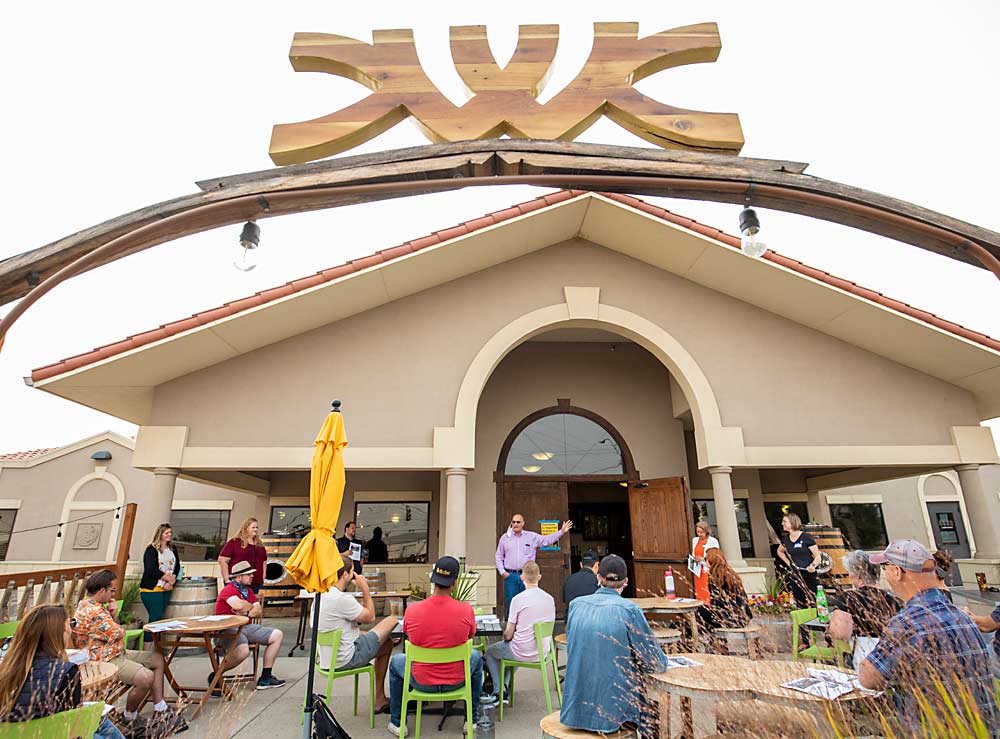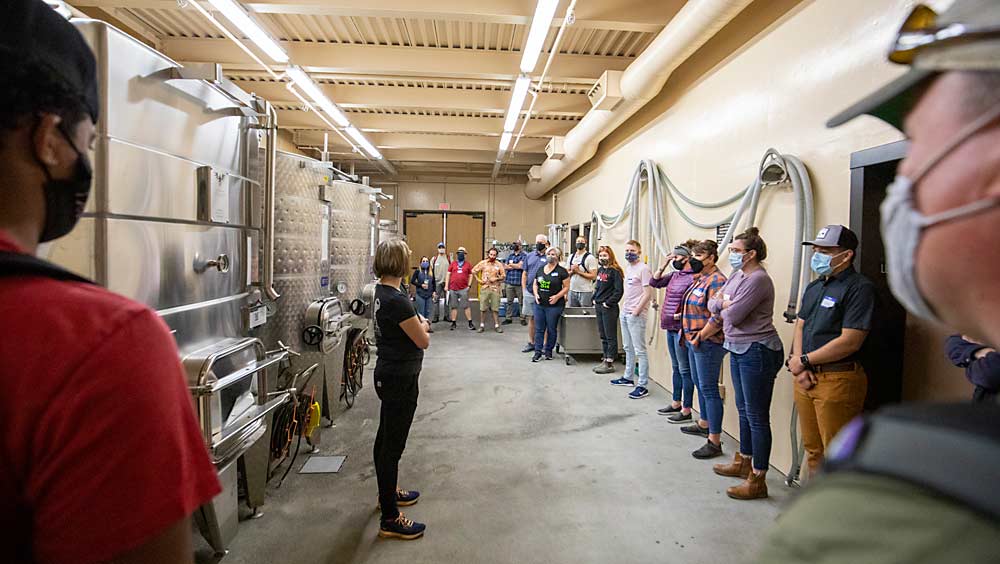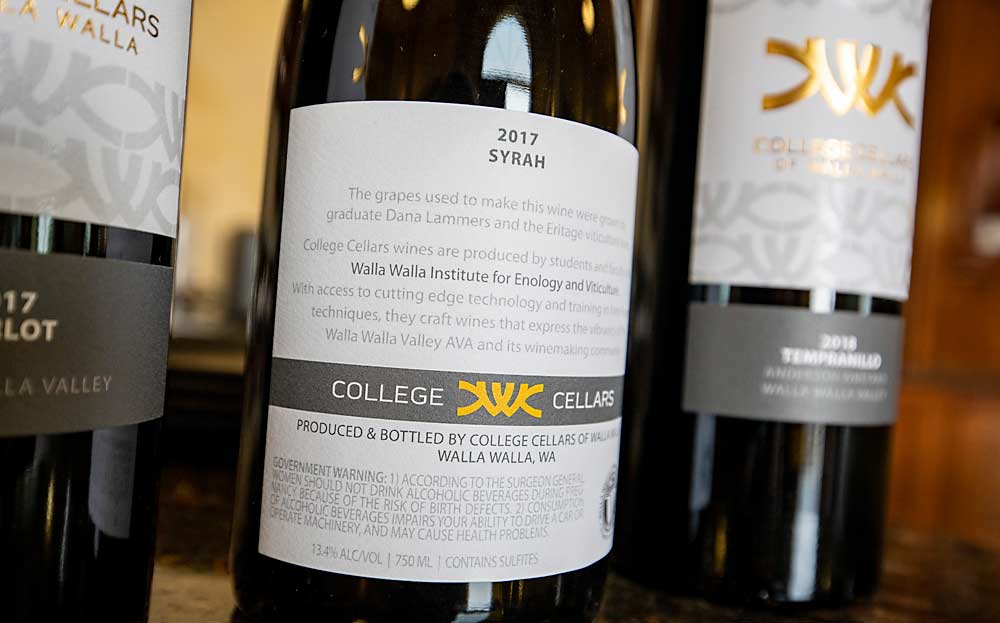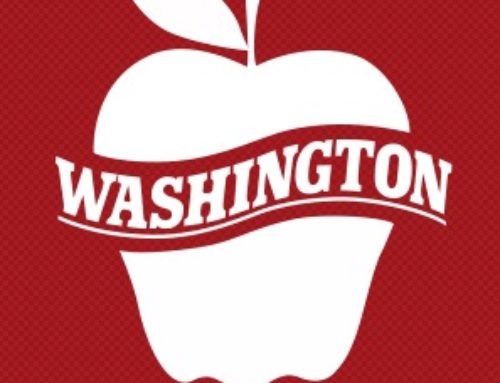
This is not your stereotypical community college crowd. At the orientation for the Walla Walla Institute for Enology and Viticulture’s latest cohort last fall, students from around the country introduced themselves with backgrounds ranging from New York City sommelier to military retiree to recent local high school grad.
The renown of the two-year program and the close relationship it offers with the Walla Walla wine industry attracts students of all ages, said interim director of winemaking Sabrina Lueck.
The diversity of the students — about 20 in each cohort — is one of the program’s strengths. “For our younger students, being in class with people who have more life experience is great. And our empty-nester types get a lot of energy and excitement from the young people,” she said.
As the program enters its 20th year, it continues to produce graduates the local wine industry wants to hire, said Elizabeth Bourcier, the resident vigneronne at Cayuse Vineyards and a graduate of the program’s first cohort who now serves on its advisory committee.
“It’s really vital to our community and the wineries to have a quality program like this,” she said. “You know when you hire someone out of the program, they’ve spent time in the vineyard planting and irrigating and that they actually made and bottled wine. I don’t know a lot of two-year colleges where you can get that experience in two years.”
The philosophy that students need to experience work in both the vineyard and the winery — rather than choosing one track or the other — requires packing a lot into two years. And for a program that prides itself on on-the-job training, the pandemic forced the program’s small staff to innovate their instruction while continuing to operate the college’s commercial cellar and vineyard.
“We’re proud to offer a really hands-on education,” Lueck said at the orientation, “starting tomorrow, when we’ll march you out to the vineyard for harvest.”

On their first day, students start on a carefully mapped progression of coursework and real-work experience, said Joel Perez, the program’s viticulture director. The first quarter is a harvest internship: crushing grapes, making wine and learning the basics of wine production. Then, three quarters are largely spent in viticulture, starting with vineyard establishment and economics coursework in the winter, then vineyard management in the spring and advanced vineyard management and wine chemistry in the summer. The fall quarter, students work an internship elsewhere before returning to campus for winter and spring courses centered on winemaking and the wine business.
It’s a time-tested plan, but running an educational program and a farm operated by students has proven challenging over the past two years.
“In 2020, we couldn’t even have the students in the vineyard,” Perez said, leaving him alone to run a 6-acre commercial farm that could be considered essential, except the unique students-as-farmworkers model didn’t fit into any early pandemic rules. “But the vines weren’t going to wait for the campus to figure that out.”
Unlike other lecture courses that could pivot to Zoom, Perez and Lueck scrambled to reshape their hands-on coursework for remote learning and keep up with the vineyard and winery operations.
“We really want to train students around what it takes to run a vineyard and run a winery,” Perez said.
The community college program does that for less time and tuition than a traditional university program, such as a bachelor’s degree program in viticulture and enology that universities such as Washington State University and the University of California, Davis offer.
Most of the students approach the program interested in pursuing careers in wine, not grape growing, Perez said, but understanding the connection between the vineyard and the wine is foundational no matter what industry role students seek upon graduation.

During advanced vineyard management class in the summer, for example, when Perez teaches about canopy management and deficit irrigation, “every one of those lessons, I try to overlap with the wine chemistry implications,” he said. “We start getting away from the fundamentals of agriculture to thinking about wine growing.”
Such critical lessons take months to put together, he said. “You can’t really talk about berry chemistry in January when there are no berries.”
Most graduates plan to head straight into the job market, where there’s currently high demand for skilled workers in many roles.
“Even in these trying times, we placed all the grads from the previous class in the wine industry,” Lueck said.
For those students who want to pursue a bachelor’s degree, the program has a unique partnership with a French university, Bordeaux Sciences Agro, that offers courses in English. Transfer students can go to France and finish their degree in 10 months in winemaking or grape growing specialization, Perez said, and work a harvest in Bordeaux’s acclaimed vineyards. The transfer relationship started three years ago, he said, and a couple of students have pursued the option every year.
In each cohort, small teams of graduates have made their own wines.
“What I always think is really neat is they bring that wine from the ground up, through bottling and labeling,” Bourcier said. “It’s so cool just to be starting out and be able to say, ‘I made a wine,’ — and see all the sides of it.”
Wines start in the vineyard, and it’s important to Perez that more students make those connections and pursue careers with connections to the agricultural side of the industry.
“Most people are enthralled by the romance of wine,” he said. “But if I can get two or three more students to focus on wine grape growing, that’s the success.”
—by Kate Prengaman






Leave A Comment